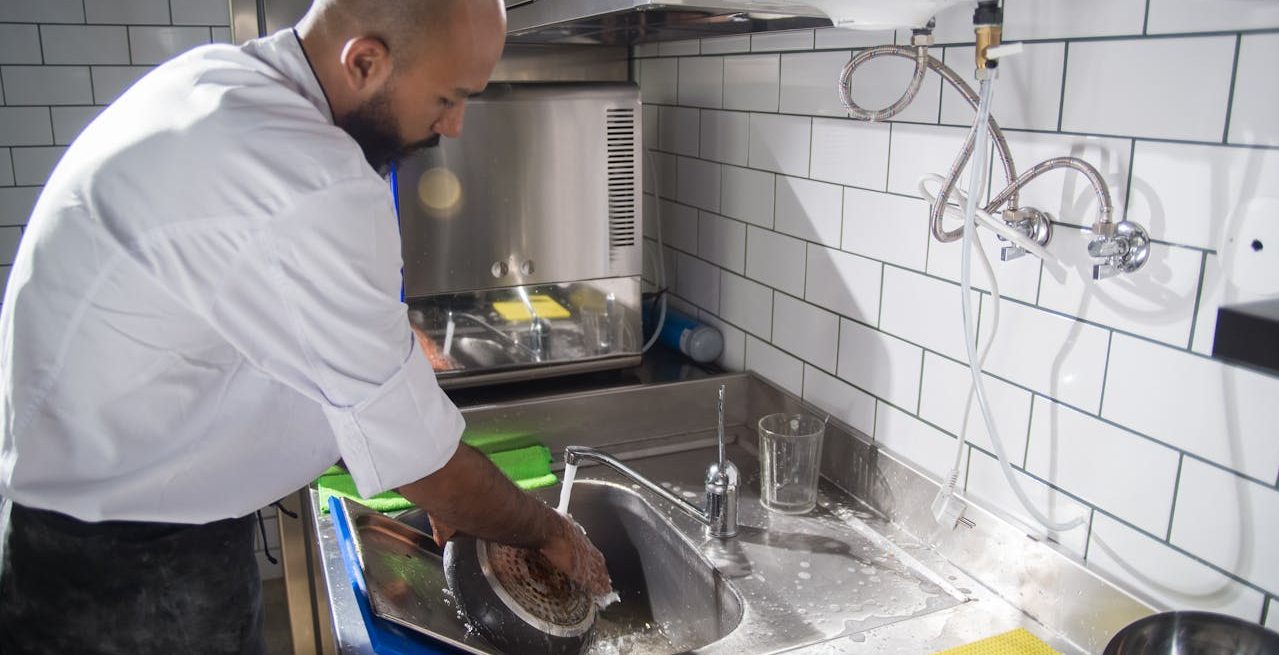Is Your Restaurant’s Hot Water System Reliable? Why It Matters
2 Min Read By Keith Kuliga
Operational efficiency is paramount in restaurants. From the front-of-house ensuring a pleasant dining experience to the kitchen crew keeping up with orders and maintaining sanitized facilities, every process needs to run smoothly. Even minor disruptions can impact the entire team and the diner experience. Investing in a reliable restaurant hot water system is crucial to avoid such disruptions and ensure consistent access to hot water when needed.
Hot water on demand is non-negotiable for restaurants striving for the highest standards of cleanliness and hygiene. Adhering to rigorous public health codes is essential, and a failed inspection due to inadequate sanitation can lead to significant reputational damage and even closure. Kitchen staff rely on hot water for sanitizing silverware, wiping down food prep areas, and quickly cleaning spills. From operating a commercial-grade dishwasher to scrubbing countertops, proper sanitation demands a dependable supply of hot water. If restaurants cannot rely on their commercial water heaterto provide hot water instantly, it can severely disrupt restaurant operations.
Beyond hygiene, hot water is vital for maintaining kitchen efficiency. Greasy spills are much easier to clean with hot water, saving time and effort. Furthermore, restaurant hygiene extends to employees, who depend on soap and hot water for handwashing to minimize the spread of germs – a practice highly valued in the food service industry.
Maintaining a Reliable Hot Water Heater
Consistent access to hot water is the bottom line for preventing costly downtime and health code violations. Restaurant owners can keep their commercial water heater running dependably by following a few basic maintenance steps.
- Perform visual inspections of the water heater monthly, looking for corrosion, scaling, rust, or frayed wires. Addressing these issues early with preventative care from a plumber can prevent unexpected failures during peak hours.
- Regularly confirm the thermostat setting is between 120°F and 140°F for optimal hot water availability and energy conservation.
- Schedule annual service calls with a professional plumber for a thorough inspection, including draining sediment, checking the Anode Rod, and assessing the overall condition of the restaurant hot water system. This proactive water heater maintenance can extend its lifespan.
- When a new water heater is necessary, consult a trusted plumber or installer who understands the demands of a commercial kitchen and can recommend a long-lasting, cost-efficient option.
Success in any restaurant hinges on maintaining operational efficiency, which is impossible with inconsistent hot water. By prioritizing water heater maintenance, restaurant managers can ensure their kitchens run smoothly, providing a seamless experience for both employees and patrons.

